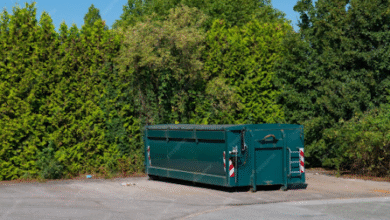
Disposable vapes have become a cornerstone of modern vaping due to their convenience, flavour, and performance. The Crystal Prime 7000 Box of 10 is a premium option for vapers seeking a long-lasting, reliable disposable device. Each unit delivers 7,000 puffs, making it suitable for both casual users and those who vape frequently.
The Box of 10 ensures a continuous supply of devices, ideal for daily use, travel, or bulk consumption. This guide provides an in-depth look at the Crystal Prime 7000 Box of 10, covering its design, features, performance, flavours, and overall value.

What is the Crystal Prime 7000 Box of 10?
The Crystal Prime 7000 Box of 10 is a high-capacity disposable vape designed for extended use, smooth flavour, and consistent performance. Unlike smaller disposables, each device offers 7,000 puffs, providing long-lasting satisfaction for vapers.
The Box of 10 contains ten individual units, ensuring users have a reliable supply for daily use without frequent repurchases. This makes it practical for heavy users, travellers, and anyone seeking bulk convenience.
Key Features
- 7,000 puffs per device – long-lasting and reliable
- Mesh coil technology – smooth vapour and consistent flavour
- Rechargeable battery – ensures full utilisation of e-liquid
- 20 mg nicotine salt – smooth and satisfying throat hit
- Pre-filled pods – no refilling required
- Draw-activated system – simple, button-free operation
- Box of 10 devices – excellent value and convenience
Design and Build Quality
The Crystal Prime 7000 features a sleek, ergonomic design. Its compact and lightweight construction allows for easy portability while providing a comfortable grip for long vaping sessions.
A transparent pod window lets users monitor e-liquid levels, and the USB-C port ensures fast and efficient recharging. The mouthpiece is designed for comfort and smooth airflow, making the vaping experience enjoyable and effortless.
The device combines durability, style, and practicality, making it suitable for daily use and travel.
Performance and Vapour Production
The Crystal Prime 7000 delivers excellent performance thanks to its mesh coil technology. This ensures even heating and produces dense vapour with rich flavour throughout all 7,000 puffs.
Unlike smaller disposables that can lose flavour after a few hundred puffs, the Crystal Prime 7000 maintains consistent flavour and vapour quality from start to finish. Its draw-activated system makes it easy to use for beginners while remaining satisfying for experienced vapers.
Flavour Range
The Crystal Prime 7000 is available in a variety of flavours to cater to different tastes:
- Fruity Blends – Mango, strawberry, blueberry, grape, and tropical mixes
- Ice Flavours – Menthol and icy fruit options for a refreshing hit
- Dessert Flavours – Sweet, creamy, and indulgent options
- Classic Tobacco – Smooth, traditional tobacco blends
The mesh coil ensures that each puff delivers consistent, full-bodied flavour, enhancing the overall vaping experience.
Convenience and Ease of Use
The Crystal Prime 7000 Box of 10 is designed for effortless usability:
- Pre-filled pods eliminate refilling
- Draw-activated firing requires no buttons or adjustments
- A rechargeable battery ensures maximum use of e-liquid
- A box of 10 devices provides a continuous supply
These features make it ideal for beginners, frequent vapers, and travellers who need a portable, reliable vaping option.
Battery and Charging
Each device features a rechargeable battery compatible with USB-C charging. This allows users to fully utilise the 7,000 puff capacity without losing any e-liquid due to battery depletion.
Fast and efficient charging ensures minimal downtime, making it convenient for daily use or extended vaping sessions.
Puff Count and Longevity
With 7,000 puffs per device, the Crystal Prime 7000 offers extended longevity compared to standard disposables. The Box of 10 provides a total of 70,000 puffs, making it an excellent choice for heavy users or anyone seeking a long-term, reliable vaping solution.
Value for Money
The Crystal Prime 7000 Box of 10 delivers great value. Each device offers long-lasting performance, and the rechargeable battery ensures no liquid goes to waste.
Compared to smaller disposables, the Crystal Prime 7000 provides better efficiency, flavour consistency, and reliability, making it a smart investment for beginners and experienced vapers alike.
Who Should Use Crystal Prime 7000?
This device is suitable for:
- Heavy vapers – Long-lasting puff count and rechargeable battery
- Beginners – Simple, draw-activated operation
- Ex-smokers – Smooth nicotine delivery
- Travellers – Compact and portable
- Bulk buyers – Box of 10 ensures a continuous supply and savings
Pros and Cons
Pros
- 7,000 puffs per device
- A rechargeable battery ensures full usage
- Mesh coil technology provides consistent flavour
- Wide range of flavours
- Compact and ergonomic design
- Box of 10 provides excellent value
- Draw-activated system for simplicity
Cons
- The device must be disposed of once the e-liquid is finished
- Limited to nicotine salt e-liquids
Why Choose Crystal Prime 7000 Box of 10?
The Crystal Prime 7000 combines performance, convenience, and long-lasting value. Its high puff count, rechargeable battery, and mesh coil technology provide a satisfying vaping experience. The Box of 10 ensures users always have backup devices, making it ideal for daily use, travel, or bulk consumption.
For vapers seeking reliable, flavourful, and long-lasting disposable vapes, the Crystal Prime 7000 is a top choice.
Conclusion
The Crystal Prime 7000 Puffs Box of 10 is a premium disposable vape designed for users who value longevity, consistent flavour, and convenience. With 7,000 puffs per device, a rechargeable battery, mesh coil technology, and a variety of flavours, it outperforms standard disposable vapes in performance and reliability.
Whether you are a beginner or an experienced vaper, the Crystal Prime 7000 Box of 10 provides a smooth, satisfying, and dependable vaping experience. The Box of 10 ensures a continuous supply, making it convenient, cost-effective, and ideal for long-term use.



